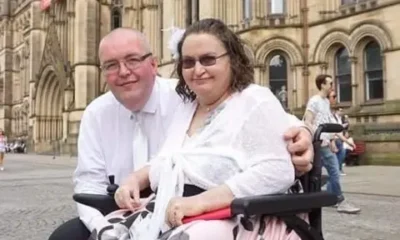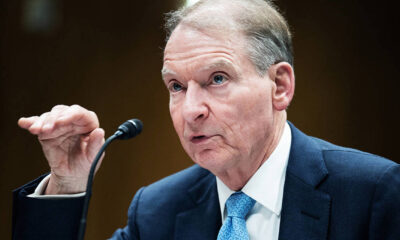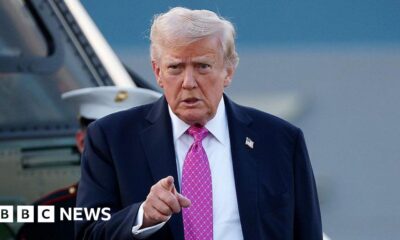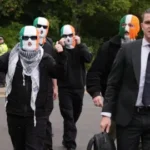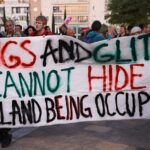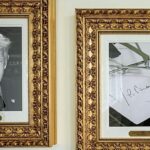Business
Trump announces new tariffs on pharmaceuticals from October
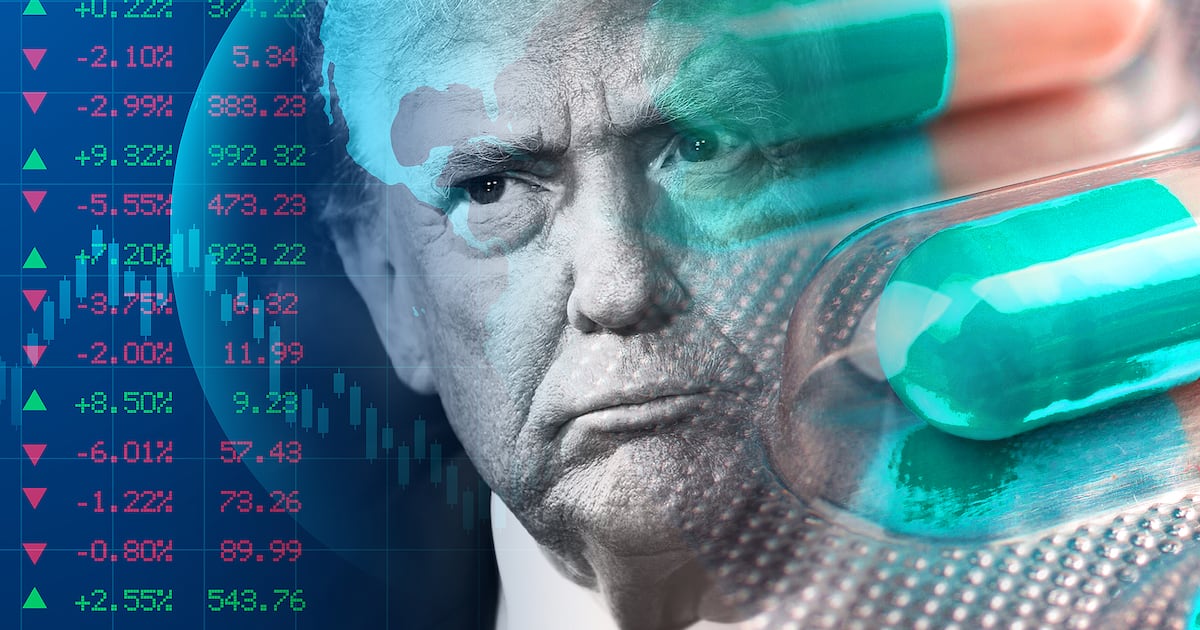
Read more on post.
The Government has said a deal capping future US tariffs on imports of pharmaceuticals from Europe still stands, despite president Donald Trump’s overnight threats of much higher trade levies targeting the industry.
Mr Trump announced plans to hit pharmaceuticals with a 100 per cent import tax from October 1st, unless a company is building a pharma manufacturing plant in America.
Officials in Brussels and Dublin are scrambling to understand where the threat leaves a EU-US tariff deal agreed earlier this year, which included key clauses that any coming US tariffs on pharma imports would not exceed a 15 per cent cap.
In a post on his Truth Social platform, Mr Trump dropped his latest tariff bombshell, stating the White House would be introducing huge import levies on pharmaceutical products.
“Starting October 1st, 2025, we will be imposing a 100 per cent tariff on any branded or patented pharmaceutical product, unless a company IS BUILDING their pharmaceutical manufacturing plant in America,” Mr Trump wrote. “There will, therefore, be no tariff on these pharmaceutical products if construction has started,” he said.
In a statement, Tánaiste and Minister for Foreign Affairs and Trade Simon Harris stressed the transatlantic deal on tariffs remained in place.
“We will be studying the impact of this announcement, which includes a number of exemptions, together with EU colleagues,” he said.
The EU-US deal agreed by Mr Trump and European Commission president Ursula von der Leyen was “absolutely clear” that any US tariffs on pharma imports would be limited to 15 per cent, Mr Harris said.
“This remains the case and underlines again the value of the agreement,” he said.
The tariff deal saw the EU agree to suck up across-the-board tariffs on future trade with the US, in a bid to avert what many feared could have escalated into a full blown trade war between the two long-standing economic partners.
Ireland is the most exposed state in the EU to any US tariffs on the pharma sector.
US pharma giants Pfizer, Eli Lilly, MSD and others have large manufacturing plants in the Republic, producing drugs to ship back across the Atlantic. The industry accounts for a huge portion of the the State’s exports and trade with the US, and is an important contributor of corporation tax.
A spokesman for the European Commission, the EU’s executive arm that steers trade policy, said past commitments from the Trump administration to limit any pharma tariffs to a 15 per cent ceiling were clear.
The EU and US would “continue engaging” on the implementation of that deal, “while exploring further areas for tariff exemptions as well as wider co-operation,” the spokesman said.
Mr Trump views tariffs as a way to pressure US multinational companies to relocate manufacturing capacity and jobs to America, often singling out Ireland as a country that “stole” pharmaceutical firms from the US.
The pharma tariff announcement was one of several about new industry-focused levies set to begin next Wednesday.
Imported heavy trucks will be subject to a 25 per cent duty, kitchen cabinets and bathroom vanities will be hit with a 50 per cent charge, and upholstered furniture imports are to be taxed at 30 per cent.
Taken together with the pharma announcement, the moves amount to a rapid expansion of Mr Trump’s tariff regime, which he started to erect shortly after taking office. It comes at a time when the president has flexed his executive powers like none of his modern predecessors.
[ World economy yet to feel full force of tariffsOpens in new window ]
Mr Harris met United States secretary of commerce Howard Lutnick in Washington DC on Thursday to discuss the economic, trade and investment relationship between Ireland and the US.
They discussed the potential of expanding the list of goods that are exempt from the baseline 15 per cent tariff rate. A spokesman for the Department of Foreign Affairs said Ireland has a particular interest in this as it relates to the spirits and medtech sectors.
They also discussed the issue of non-tariff barriers as well as the ongoing Section 232 investigations on pharmaceuticals and semiconductors.
They exchanged views on the impact of the expansion of the section 232 measures on certain steel and aluminium given the impact of these on a number of Irish manufacturers, particularly in the agri-tech sector.
The Trump administration’s trade deals with Japan, the EU and the United Kingdom include provisions that cap tariffs for specific products such as autos, semiconductors and pharmaceuticals, which means the new higher national security tariffs likely will not raise them above agreed rates.
Mr Trump’s posts offered no further details. The pharmaceuticals plan, as described by the president, could allow for wide exemptions for companies with presences in the US. The White House did not immediately respond to a request for more specifics.
[ US tariffs to have moderate impact on Irish economyOpens in new window ]
The levy on branded pharmaceuticals could raise the average US tariff rate by up to 3.3 percentage points, according to Bloomberg Economics, though the impact may be offset by the exemption for companies building local manufacturing facilities. Singapore and Switzerland are the countries most exposed to the move.
Major drugmakers, including Merck, AstraZeneca and Johnson & Johnson, have announced billions of dollars in planned US manufacturing investments in the months since Mr Trump’s inauguration, following the president’s repeated threats to impose levies on drugs imported from overseas.
– Additional reporting Bloomberg
Business
Mass arrests for sextortion and romance scams in sting operation across Africa
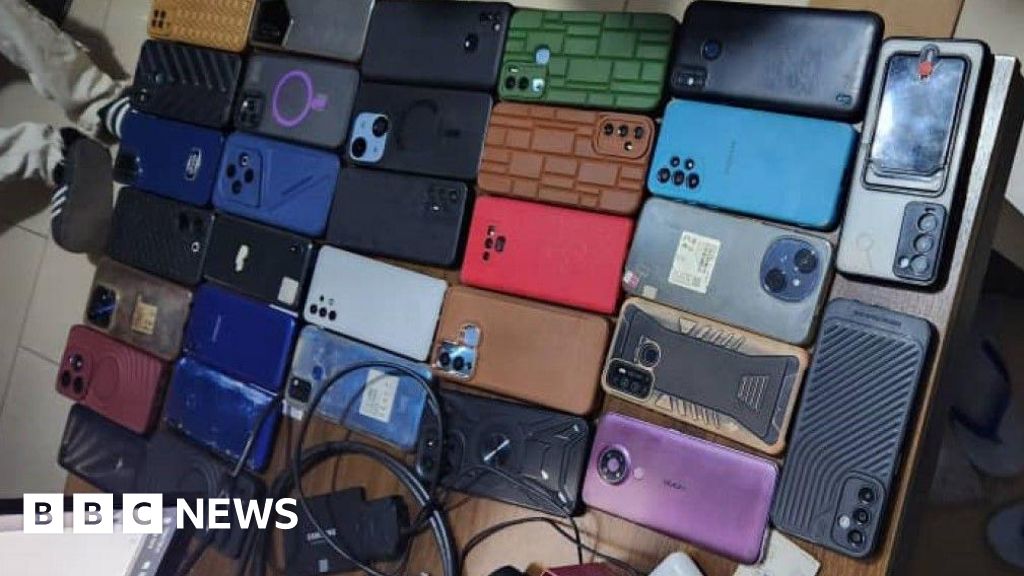
Read full article on post.
Some 260 suspected cyber scammers have been arrested in a sting operation carried out across 14 African countries.
The operation, co-ordinated by Interpol and funded by the UK, targeted criminal networks using social media and digital platforms to extract money from victims in romance scams, and in so-called “sextortion”, in which victims are blackmailed using explicit imagery.
More than 1,400 victims across Ghana, Kenya, Angola and elsewhere were identified, with Interpol estimating their total losses at nearly $2.8m (£2.1m).
The global police network said it was committed to “disrupting and dismantling the groups that prey on vulnerable individuals online”.
During the crackdown which was carried out between July and August, police identified IP addresses, digital infrastructure, domains and social media profiles linked to members of the scam syndicates.
These leads and the subsequent arrests also resulted in the seizure of USB drives, Sim cards and forged documents, as well as the taking-down of 81 cyber-crime groups across Africa, Interpol said.
“Cyber-crime units across Africa are reporting a sharp rise in digital-enabled crimes such as sextortion and romance scams,” said Cyril Gout, the acting executive director of police services at Interpol.
He said the growth of online platforms had opened new opportunities for criminal networks to exploit victims “causing both financial loss and psychological harm”.
About 68 suspects were arrested in Ghana, where authorities seized 835 devices and identified 108 victims during the operation. Investigators there recovered $70,000 from the estimated $450,000 in financial losses.
Scammers in Ghana extracted payments using a range of schemes, including fake courier and customs shipment fees. They secretly recorded intimate videos during explicit chats and used them to blackmail people.
In Senegal, police arrested 22 suspects and uncovered a network that impersonated celebrities and used emotional manipulation on social media and dating platforms to defraud 120 victims of approximately $34,000.
A total of 65 devices, forged identification documents and money transfer records were seized during the operation there.
And in Ivory Coast, police arrested 24 suspects, seized 29 devices and identified 809 victims. Scammers used fake profiles online to blackmail victims, demanding payments to prevent public exposure.
Eight suspects were arrested in Angola where authorities identified 28 domestic and international victims, primarily targeted via social media. Scammers used fraudulent documents to create fake identities, facilitating financial transactions and concealing their real identities while engaging victims.
Other countries involved in the operation under the African Joint Operation against Cyber-crime project include Benin, Burkina Faso, The Gambia, Guinea, Kenya, Nigeria, Rwanda, South Africa, Uganda and Zambia.
Business
Kneecap rapper’s terror case thrown out
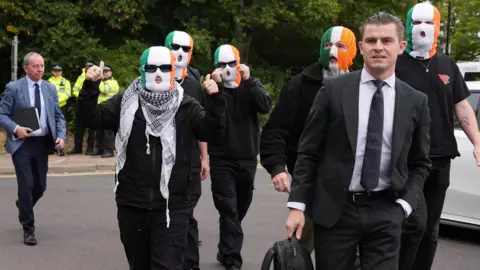
Read full article on post.
Kelly Bonner and Barry O’ConnorBBC News NI
The terrorism case against Kneecap rapper Liam Óg Ó hAnnaidh has been thrown out following a technical error in the way the charge against him was brought.
He was charged in May after allegedly displaying a flag in support of proscribed organisation Hezbollah at a gig at the O2 Forum in Kentish Town, London, in November 2024.
The 27-year-old, who performs under the stage name Mo Chara, denied the charge and has described it as political.
Chief Magistrate Paul Goldspring told Woolwich Crown Court that the charge against Mr Ó hAnnaidh was “unlawful” and “null”.
The court erupted into applause as the judge handed down the ruling.
As Mr Ó hAnnaidh left the court his parents hugged him and said they were “delighted” it was over.
First Minister Michelle O’Neill has welcomed the ruling.
The case was due to be heard at Westminster Magistrates’ Court but was moved to Woolwich, due to a burst water main.
Hezbollah is proscribed as a terrorist organisation by the UK and it is a crime to express support for them.
During a court appearance on 20 August legal arguments around whether the charge was brought within the six-month time limit were heard.
His defence team were seeking to throw the case out, citing a technical error in the way the charge was brought against Mr Ó hAnnaidh.
Who are Kneecap?
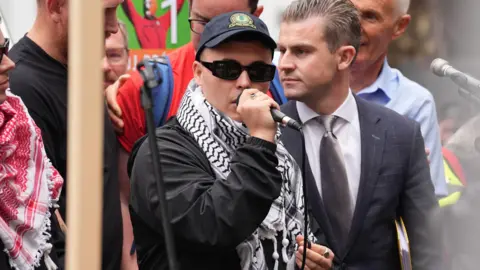 PA Media
PA MediaBreaking News
Kneecap rapper’s terror case thrown out

Read more on post.
Kelly Bonner and Barry O’ConnorBBC News NI
The terrorism case against Kneecap rapper Liam Óg Ó hAnnaidh has been thrown out following a technical error in the way the charge against him was brought.
He was charged in May after allegedly displaying a flag in support of proscribed organisation Hezbollah at a gig at the O2 Forum in Kentish Town, London, in November 2024.
The 27-year-old, who performs under the stage name Mo Chara, denied the charge and has described it as political.
Chief Magistrate Paul Goldspring told Woolwich Crown Court that the charge against Mr Ó hAnnaidh was “unlawful” and “null”.
The court erupted into applause as the judge handed down the ruling.
As Mr Ó hAnnaidh left the court his parents hugged him and said they were “delighted” it was over.
First Minister Michelle O’Neill has welcomed the ruling.
The case was due to be heard at Westminster Magistrates’ Court but was moved to Woolwich, due to a burst water main.
Hezbollah is proscribed as a terrorist organisation by the UK and it is a crime to express support for them.
During a court appearance on 20 August legal arguments around whether the charge was brought within the six-month time limit were heard.
His defence team were seeking to throw the case out, citing a technical error in the way the charge was brought against Mr Ó hAnnaidh.
Who are Kneecap?
 PA Media
PA Media-
Politics3 days ago
European Parliament snubs Orbán with vote to shield Italian MEP from Hungarian arrest
-
Culture3 weeks ago
Life, loss, fame & family – the IFI Documentary Festival in focus
-
Health4 days ago
EU renews support for WHO’s Universal Health Coverage Partnership
-
Environment6 days ago
Key oceans treaty crosses threshold to come into force
-
Culture3 days ago
Twilight at 20: the many afterlives of Stephenie Meyer’s vampires
-
Culture1 week ago
Farewell, Sundance – how Robert Redford changed cinema forever
-
Culture2 months ago
Fatal, flashy and indecent – the movies of Adrian Lyne revisited
-
Culture3 weeks ago
What is KPop Demon Hunters, and why is everyone talking about it?


